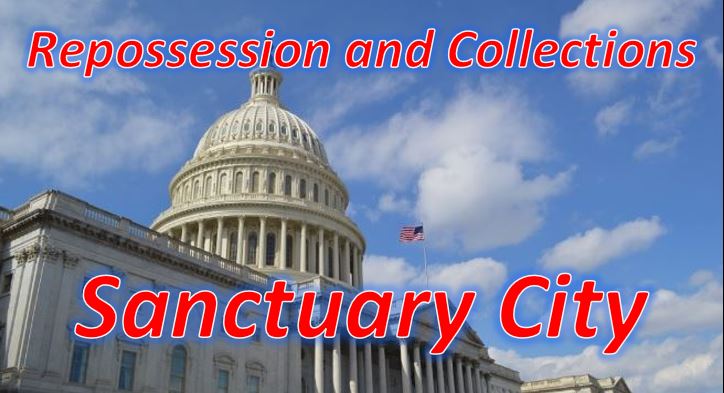
The Washington, D.C., City Council will meet next week to consider whether to make permanent a bill that prohibits involuntary repossessions during a public health emergency and for 60 days after. The Bill, which had already passed as temporary in July also contains many provisions limiting communications and as well as mandates on additional documentation of debts.
The “Protecting Consumers from Unjust Debt Collection Practices Amendment Act of 2021”, Bill 24357 is open for public comment at the city council’s Monday, Nov. 29th public hearing. Anyone wishing to testify needs to visit the city council chairman’s website by 5 p.m. EST, Friday, Nov. 26.
Washington D.C. Council Bill 240357, titled; “Protecting Consumers from Unjust Debt Collection Practices Amendment Act of 2021” is almost identical to Bill 240348 titled “Protecting Consumers from Unjust Debt Collection Practices Temporary Amendment Act of 2021.” Note the word “temporary”. This is the primary difference between the two bills. Temporary Bill 240348 was signed into law on September 1, 2021 by DC Mayor Muriel Bowser.
“(2) During a public health emergency and for 60 days after its conclusion, no creditor or debt collector shall, with respect to any debt:
“(A) Initiate, file, or threaten to file any new collection lawsuit;
“(B) Initiate, threaten to initiate, or act upon any statutory remedy for the garnishment, seizure, attachment, or withholding of wages, earnings, property, or funds for the payment of a debt to a creditor;
“(C) Initiate, threaten to initiate, or act upon any statutory remedy for the repossession of any vehicle; except, that creditors or debt collectors may accept collateral that is voluntarily surrendered;
“(D) Visit or threaten to visit the household of a debtor at any time for the purpose of collecting a debt
Some of the current requirements in Washington, D.C., include:
- A debt collector cannot call a consumer more than three days in a seven-day period. However, calls initiated by the consumer or made by a debt collector at the request of a consumer do not count toward the call limit of three calls in any seven-day period.
- Itemized notices of the amount claimed to be owed by the consumer are required. However, if the debt arises from a credit card, the itemized accounting shall be measured from the charge-off balance and shall include copies of the charge-off statement and the most recent monthly statement recording a purchase transaction, last payment, or balance transfer. This amendment strikes the following language from the original legislation: If the debt arises from a credit card, the account shall include the last 24 periodic statements required by the Truth in Lending Act, 15. U.S.C. Section 1637(b), that evidence the transactions, purchases, fees and charges that comprise the debt. Striking this language ensures that consumers receive relevant information regarding their debt obligation, including any fees, etc., without receiving a large volume of statements or paperwork. The additional language is necessary for credit card debt due to limitations on what information banks can feasibly provide to debt collectors.
- Debt collectors are required to send a notice to consumers stating information on their account, such as the name of the original creditor as well as the name of the current creditor or owner of the debt, is available—rather than having the debt collector send this information unsolicited after an initial communication.
This bill is opposed by the ACA as well as the Mid-Atlantic Collectors Association.
“ACA and the Mid-Atlantic Collectors Association continue to work with a large industry coalition for sensible amendments to the pending legislation, but until a permanent bill is passed, or the temporary legislation expires, what is out there right now is the law of the land in D.C,” said ACA’s Vice President of State and Government Affairs Andrew Madden.
Washington DC seeks to make COVID era repossession moratorium permanent










